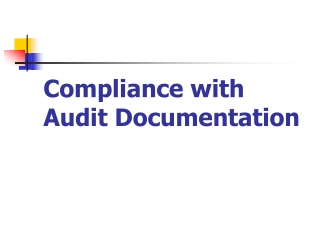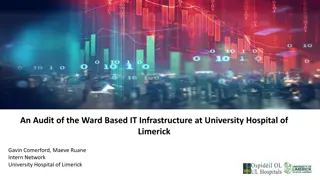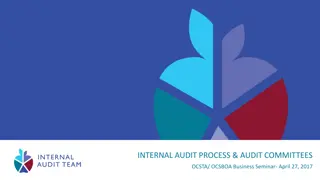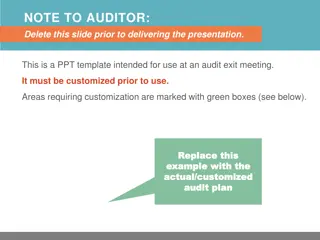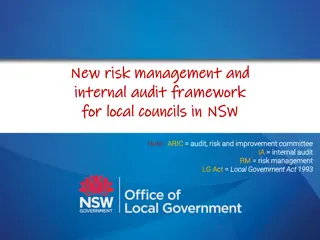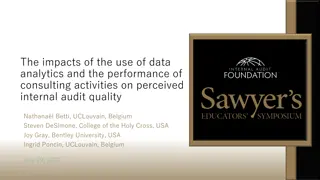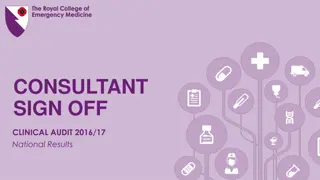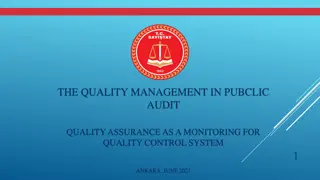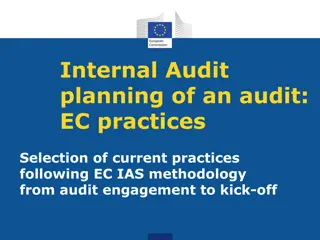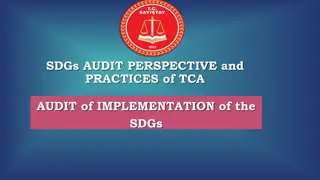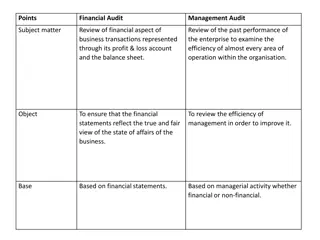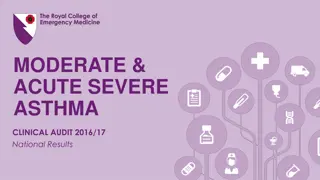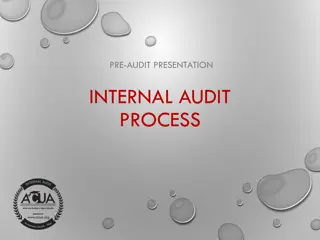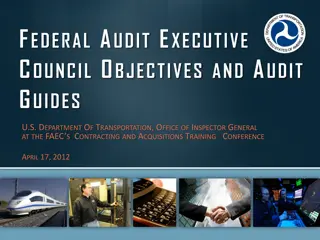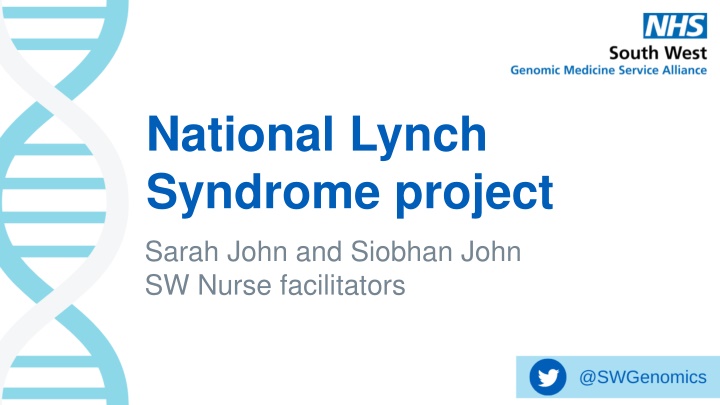
Lynch Syndrome Awareness and Diagnostic Pathways
Discover the importance of Lynch syndrome testing and early diagnosis. Learn about the impact of Lynch syndrome on cancer treatment options, immunotherapy advancements, and the significance of improving diagnostic pathways for better patient outcomes. Stay informed to help combat hereditary colorectal cancer effectively.
Download Presentation

Please find below an Image/Link to download the presentation.
The content on the website is provided AS IS for your information and personal use only. It may not be sold, licensed, or shared on other websites without obtaining consent from the author. If you encounter any issues during the download, it is possible that the publisher has removed the file from their server.
You are allowed to download the files provided on this website for personal or commercial use, subject to the condition that they are used lawfully. All files are the property of their respective owners.
The content on the website is provided AS IS for your information and personal use only. It may not be sold, licensed, or shared on other websites without obtaining consent from the author.
E N D
Presentation Transcript
National Lynch Syndrome project Sarah John and Siobhan John SW Nurse facilitators
Why worry about Lynch? Each year, 1,100 colorectal cancers are caused by Lynch syndrome, making it the most common form of hereditary colorectal cancer. An estimated 175,000 people have Lynch syndrome in the UK, but fewer than 5% of individuals know they have the condition (Bowel Cancer UK).
When should we test? A dMMR can affect cancer treatment options, certain tumours are more responsive to particular chemotherapy agents as well as new immunotherapy drugs called check point inhibitors. It is therefore important that the initial tumour test is done in time to inform treatment options
Immunotherapy in Lynch Syndrome
Improving diagnostic pathways
Example of completed baseline audit Additional results (after MMR) discussed at MDT yes/no/not applicable Date of the surgery/ endoscopic samples Date the Lynch MSI report was added Date the Lynch IHC MMR report was added 12/07/2022 y 04/02/2022 y MMR/MSI results discussed at MDT yes/no y y n y y n y y y n y y y n y y y y n n - reflex BRAF y n BRAF tested yes no (only for CRC MDTs) n n n n n n n n n n y n n n y y y n n BRAF test date (only for CRC MDTs) BRAF mutant yes/no/ not applicable (only for CRC MDTs) Promotor methylation yes/no/ not applicable Referred germline testing yes/no/not applicable Endoscopic biopsies tested yes/no Surgical resection tested yes/no y y y n n MLH1 methylation test yes/no MLH1 methylation test date Age at diagnosis Tumour Stage (TNM) 60 pT2pN1a 65 ypT3pN0 80 pT3pN0 / pT1pN0 79 pT3pN0 74 bx only 86 pT2N0 39 pT4aN2b 53 ypT3N1a 66 pT3N1b 81 pT1N0 79 pT4aN0 60 n/a 77 pT2N0 79 pT2N0V1 42 pT3N0 37 pT4aN1a 39 ypT4aN1b 40 ypT1N0 78 pT3pN0 84 pTpN0 82 pT2N1b 84 n/a 43 pT4aN0M1c 53 n/a 68 pT3pN0 80 pT3N1a 81 pT3N1b 75 n/a 80 pT3N1b 59 n/a 29 pT4aN1V1 MSI testing yes/no n y y n n y n n n y n MMR testing yes/no MMR test date 06/07/2022 n 27/01/2022 n MLH1 loss yes/no MSH2 loss yes/no n n MSH6 loss yes/no n n PMS2 loss yes/no n n Gender MSI date MSI Stable MSI unestable 06/07/2022 n 15/07/2022 y 08/03/2022 n 16/05/2022 y 02/02/2022 y 19/04/2022 n - ca not confirmedy 05/03/2021 n - emerg op 16/04/2021 y 26/11/2021 n 10/11/2021 n - bx LGD only 19/11/2021 n - emerg op 19/11/2021 y 06/02/2022 y 28/03/2022 n 31/12/2021 n - pt obstructing y 21/10/2021 y 09/10/2021 y 07/10/2021 y 07/04/2022 n 09/05/2022 n 14/03/2022 n 24/01/2022 n - unfit for surgery n 27/04/2022 n 29/05/2022 y 13/06/2022 n 13/06/2022 n - bx benign 04/05/2022 n 06/01/2022 y 24/05/2022 n 19/07/2022 y 14/03/2022 n F F M M M F f F M F F M F M M M M M F F M M M F M F M F M F 15/07/2022 y 28/03/2022 y n n 05/08/2022 25/04/2022 n 21/03/2022 y 03/02/2022 y 02/03/2022 n 21/02/2022 n n n n n n n 19/04/2022 y n 11/05/2022 n y n y y y n - had RT only n y - at NBT y 15/03/2021 y 23/04/2021 y 08/12/2021 y 10/03/2021 n 16/04/2021 n 26/11/2021 y n n n n n n n n y y y 24/12/2021 y n n 10/11/2021 y n 01/12/2021 n 28/11/2021 y 02/02/2021 y 21/03/2022 y 22/11/2021 y done at NBT 16/02/2022 n n n n y n n n n n 22/12/2021 n n n y y 19/05/2022 y 28/03/2022 y 07/01/2022 n 18/02/2022 inconclusive. Repeated 13/6/22 n n y n 23/06/2022 12/04/2022 24/01/2022 10/03/2022 n n 24/01/2022 y 24/11/2021 y 26/04/2022 n y 07/02/2022 n y y n - pt now gone private so possibly no documentation n - pt now gone private so possibly no documentation y y 2 somatic variants found in MSH2 - likely sporadic as germline test y n n y y y y n n y y y n n n n n n n y 08/11/2021 y 22/10/2021 y 12/10/2021 y 25/10/2021 n 14/10/2021 n 08/10/2021 n n n n n n n n n n 07/04/2022 y 09/05/2022 n 13/04/2022 y n y n 03/05/2022 26/05/2022 16/05/2022 n n n n 27/05/2022 n n n n n y n n y y n y y y n - palliative y y y n -palliative y having neo-adj tx y 11/05/2022 y 27/06/2022 y 20/06/2022 y 20/06/2022 y 10/05/2022 y 14/01/2022 y 27/04/2022 n 01/06/2022 n 13/06/2022 n 13/06/2022 n 04/05/2022 y 06/01/2022 n n n n n n n n n n n n n n n n n y n y y n n n y n y 26/07/2022 n 26/05/2022 n 03/02/2022 n y 06/06/2022 y n 15/06/2022 15/08/2022 y 13/04/2022 y 11/08/2022 n 14/03/2022 y n n n n n y 11/08/2022 n 13/04/2022 n n y 25/04/2022 n y y 28/4/22
Analysis of Audits Trust A Trust B IHC/MSI 97 % 95% Colon biopsies 39% 9% Methylation/BRAF 100% 100% Discussion at MDT 75% 0% Referral Genetics 60% NA
Our Role To support trusts across to the south west to ensure patients with colorectal and endometrial cancers are routinely tested for lynch at diagnosis. To ensure patients are on the correct surveillance pathway and they are added to the regional database. Doing this Through supporting trusts to audit their current provision and highlighting good and bad practice Implementing mainstream germline testing

